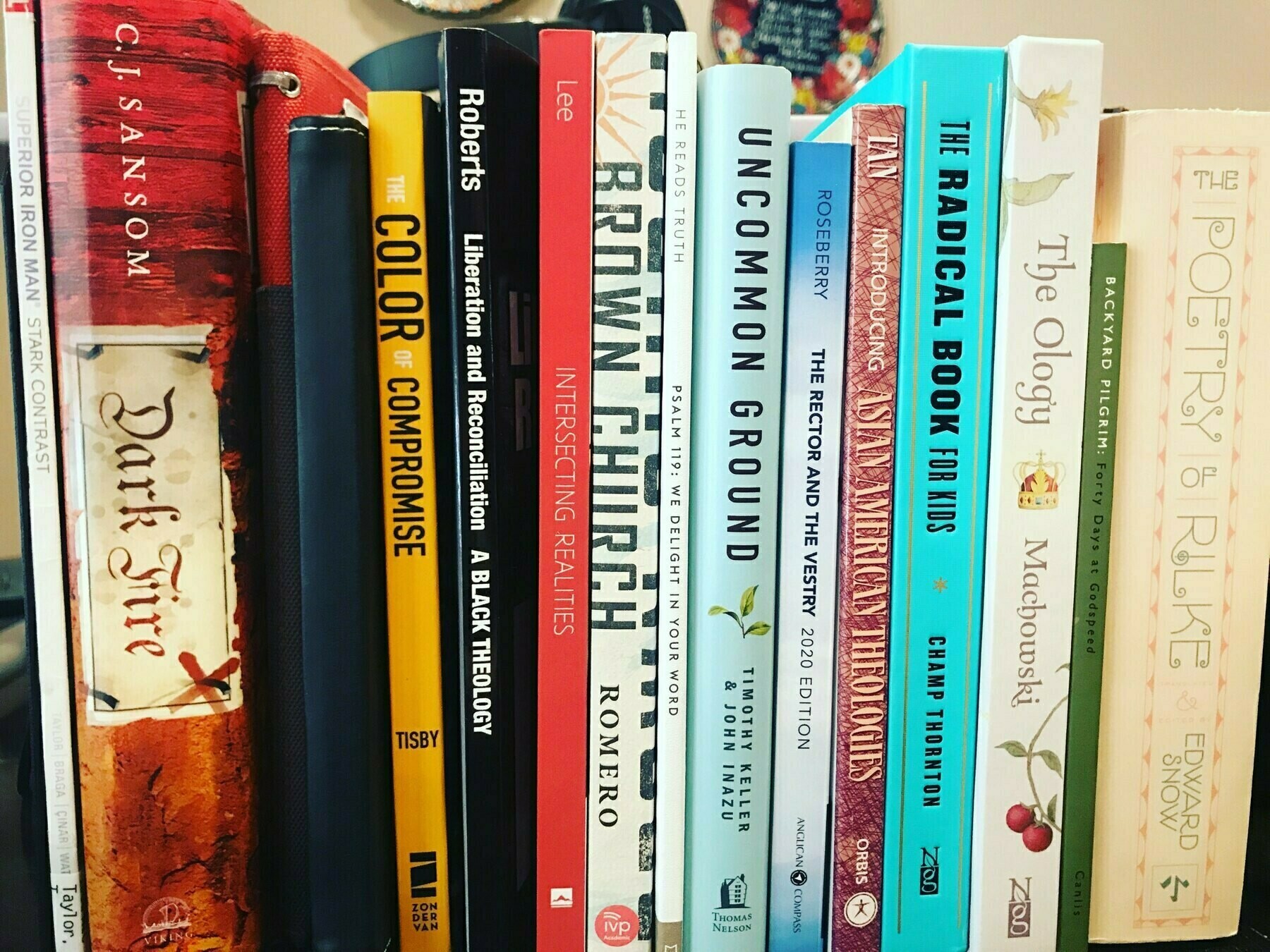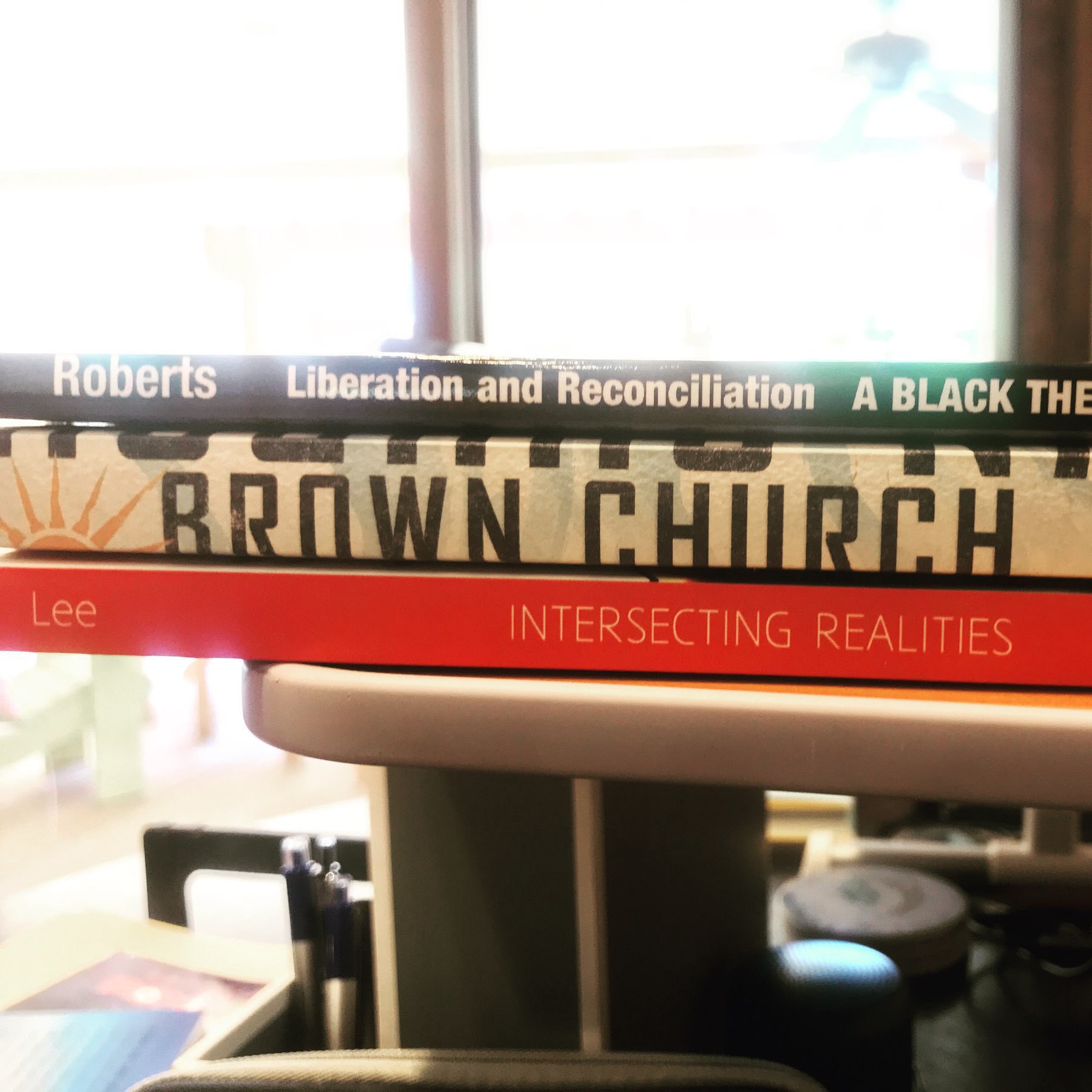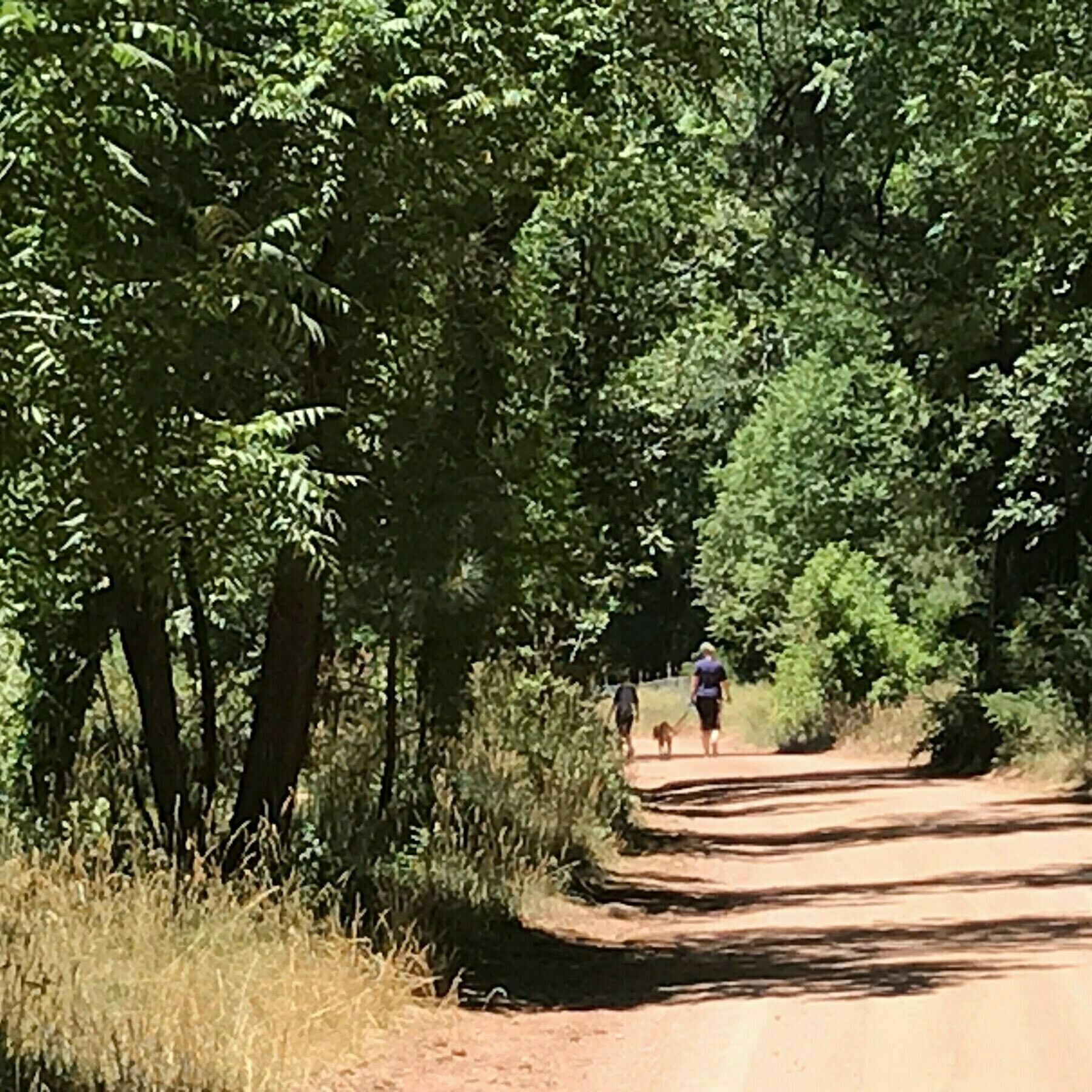2020
- F. Dean Lueking, The Lectionary Commentary
We are in a season of confusion, disinformation, and distraction.
God’s Word incarnate, Jesus Christ, as revealed in God’s Word written, the Holy Scriptures, will be a lamp to light your next step.
There’s no reason to be afraid.
You won’t have all the answers all the time, but you can follow the one who is Wisdom in the flesh.
Read your Bible with an open heart. Receive the Sacraments with gratitude. Pray with a fervent faith. And love each other with the love of the Lord.
Keep your eye on the prize.
The distinguishing mark of the Church
I wholeheartedly believe the church is meant to credibly model and offer a different way of life than what the rest of the world experiences.
In particular, the distinguishing mark of the church is radical love for one another, for the sake of Christ.
As long as Sundays remain mostly segregated…
As long as women are discouraged from exercising their spiritual gifts and demeaned when they do…
As long as children sense they are a burden in the worship service…
As long as singles don’t find a sense of real, every-day family in the household of faith…
As long as keeping the peace is more important than peacemaking in our communities…
As long as certain topics are “off limits” for fear of offense in our gatherings…
As long as we demand and are satisfied with worldly ways of leading congregations…
As long as we act as if our obligations to one another are met via an occasional check in the offering and pleasantries in the parking lot…
As long as convenience and preference are the determining factors for level of involvement and degree of commitment…
As long as we allow American partisan differences to sow demonic division instead of inspire biblical discussion…
…we are missing our vocation of radical love for one another!
Keeping the peace or peacemaking?
I think there is a difference between “keeping the peace” and peacemaking.
In the first, tension is avoided for fear of conflict/disagreement destroying relationships. In the second, a certain kind of tension is actively sought out so that working through it together, relationships are strengthened.
In the first, a surface-level appearance of same-ness (not the same thing as unity!) must be maintained. In the second, a true and deep communion/knowing is desired even if that means acknowledging deeply embedded differences openly.
In the first, the status-quo is maintained, even when ultimately harmful or unhealthy. In the second, careful discernment leads to steady movements closer to the heart of Jesus.
In the first, discomfort is avoided. In the second, a kind of suffering is embraced.
The church in America continues to wrestle with things like how to realize racial reconciliation in our unique context, how to love one another across the political party divides, and how to present a distinctive and credible witness to the truth of the Gospel.
In order to move forward in ways that are faithful to Jesus and demonstrate true love between us, I believe we must renew our commitment to true peacemaking over and against keeping the peace.
Current slate of physical books in play

A dear friend, brother in Christ, and parishioner of mine passed away last week. This is how I can express my feelings.
These are changing times, friends. Hard times, but not without some hope.
Soundcloud is so aggressive in suggesting their pro option that I just moved everything over to BandLab, where I’ve been spending a ton of time lately anyways. Everything Soundcloud does for me, BandLab does about 10x better…and for free at the moment.
15 years married to Amber today. She’s the best friend anyone could ask for, an inspiring parent, and an absolutely dedicated wife. Faithfully follows Jesus day in and day out. Works hard for the kingdom and her family and her friends. Teaches me about what’s truly important in life daily. Smartest person I know, too. I know I don’t deserve her. So grateful to be facing the future together.

02 What is the Gospel? The Gospel is the good news that God loves the world and offers salvation from sin through his Son, Jesus Christ. (Psalm 103:1–13; Isaiah 53:4–5; John 3:16–17; 1 Corinthians 15:1–5)
From To Be A Christian - An Anglican Catechism
The Gospel (good news) of Jesus Christ is absolutely at the core of the Christian message–and the Christian life.
Over time I’ve come realize that the Gospel isn’t just the first truth in a long line of other things to learn about God and life, that eventually I move beyond.
Instead, for me it is more like a key that unlocks every other theological truth, whether they are presented in succession or not, so that it is always with me.
The Gospel is the gravitational center around which the fullness of what we can know and experience about God, humanity, and all of creation orbits.
A few (though not all) of the books I intend to read as I participate in Nashota House’s “The Bible & Theology in Color” with Fr. Esau McCaulley One more in the mail and 2 more in ebook format. I must admit I’m woefully under read on this and it’s tough to know where to begin…I’m very grateful just for the suggested reading list!

Currently reading: The Color of Compromise: The Truth about the American Church’s Complicity in Racism by Jemar Tisby 📚
Food for thought:
“The shallow character of many strategies for renewal is revealed just to the extent that the resulting churches cannot understand how Christians might face persecutions. This is a particular problem in America, where Christians cannot imagine how being a Christian might put them in tension with the American way of life. This is as true for Christians on the left as it is for Christians on the right. Both mistakenly assume, often in quite similar ways, that freedom is a necessary condition for discipleship.”
Stanley Hauerwas, in his commentary on Matthew.
A risky faith
I’ve been thinking about the whole idea of risk-taking, faith, and Christian witness. They are all intertwined–and rightfully so–for Christian community, and necessarily come to the forefront in times like these.
I don’t think we prove we are Christians by taking unnecessary risks in “faith.”
For example, snake-handling is not a biblically justified practice even though there are some verses in the Bible about God’s protection from snakes in certain circumstances.
Not to put too fine a point on it, but deliberately exposing yourself to a disease isn’t biblical either, even though we have plenty of Scripture about divine protection and healing from sickness.
These are not universal promises for every situation, but usually poetic devices pointing the the ultimate security of the believer as they trust in God (Ps. 91), or instructions for a specific, time-bound assignment (Luke 10:19).
Certainly miracles of protection from things like snakes and poison can and do accompany the preaching of the Gospel (Mark 16:18). Nevertheless, these passages are not generally understood to be about keeping rattlesnakes as pets or lacing your Diet Coke with arsenic.
This stuff isn’t about a generally rash lifestyle or “proof” of personal faith, but rather signs to confirm the truth of the Gospel message in specific situations (e.g. Acts 28:3).
There are no guarantees of divine protection if you put yourself in harm’s way just because you can…especially in a effort to “prove” your faith. John Wesley said in his commentary on Mark 16:18, “God never calls us to try any such experiments.”*
That said, I do think the world will know we are Christians by our love (John 13:45), which always entails an element of risk.
The way we approach that risk isn’t “faith” that we won’t be hurt, though. Our faith is that acts of love of are worth the suffering. Our faith is that though we die now in the act of the love, we yet live again because our life is ultimately in the hands of God. Our faith is in the Christ that leads us not away from the Cross, but though it with him.
In other words, our motivation for taking risks in faith is to demonstrate hope and love in suffering, not to prove a level of personal “faith” that we won’t suffer.
Put still another way, Christians take risks for the sake of others, at their personal expense, not to make sure they are looking “strong”–especially at the expense of others.
Christians often look, seem, and feel weak and vulnerable in this, yet it is in these moments we are most like our Lord in his earthly ministry. God’s desire isn’t for us to look “strong” in the face of something like the current pandemic by throwing caution to the wind.
He wants us to be faithful to him, love our neighbors in practical ways, and exercise wisdom–even as we endure suffering through circumstances out of our control and beyond our understanding.
So, to find evidence of faith, we don’t look to extraordinary acts of boldness, we look to see if we growing and bearing fruit (John 15:8).
“But the fruit of the Spirit is love, joy, peace, patience, kindness, goodness, faithfulness, gentleness, self-control; against such things there is no law.” (Galatians 5:22–23, ESV)
That’s what we’re looking for.
—
*John Wesley, Explanatory Notes upon the New Testament, Fourth American Edition., (New York: J. Soule and T. Mason, 1818), 140.
Moments from the creek


Keychron K2. Love this Keyboard.

“Mystery, in the New Testament, is never total, enduring obscurity, but the grace of God made manifest in God’s way and time.”
First full track made in Abelton with my Launchkey Mini Mk 3
Made a music page so you can find some of the stuff I’m composing and recording. More to come.
God’s purpose is not that we should be Old Testament Christians, regenerate indeed, but living in slavery to the law and in bondage to indwelling sin. It is rather that we should be New Testament Christians who, having died and risen with Christ, are living in the freedom of the indwelling Spirit.
John R. W. Stott, The Message of Romans: God’s Good News for the World, The Bible Speaks Today, (Leicester, England; Downers Grove, IL: InterVarsity Press, 2001), 215.
John Stott cites Tom Wright in his commentary on Romans. Pretty exciting find for me since these are two of my absolute favorite pastor-theologians.
 NRH
NRH